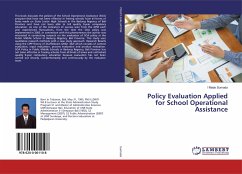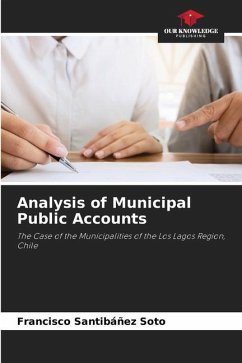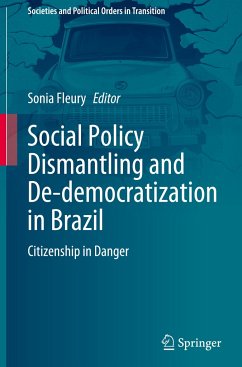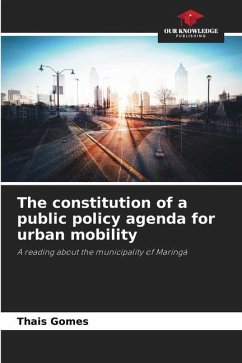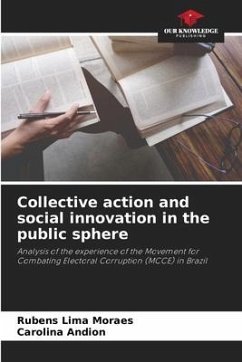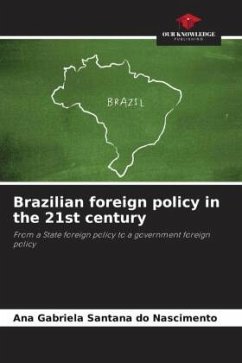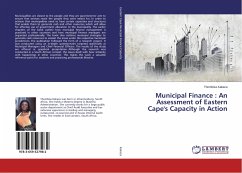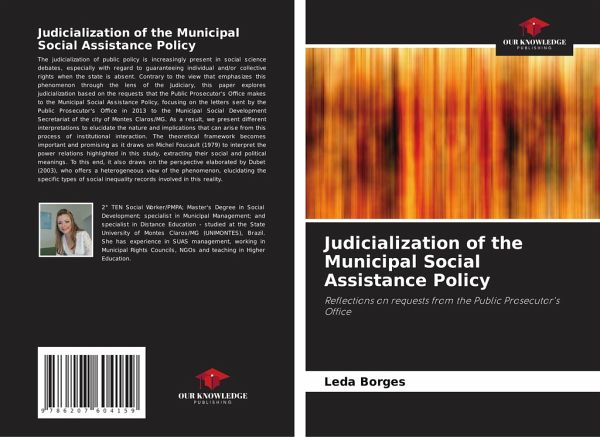
Judicialization of the Municipal Social Assistance Policy
Reflections on requests from the Public Prosecutor's Office
Versandkostenfrei!
Versandfertig in 6-10 Tagen
41,99 €
inkl. MwSt.

PAYBACK Punkte
21 °P sammeln!
The judicialization of public policy is increasingly present in social science debates, especially with regard to guaranteeing individual and/or collective rights when the state is absent. Contrary to the view that emphasizes this phenomenon through the lens of the Judiciary, this paper explores judicialization based on the requests that the Public Prosecutor's Office makes to the Municipal Social Assistance Policy, focusing on the letters sent by the Public Prosecutor's Office in 2013 to the Municipal Social Development Secretariat of the city of Montes Claros/MG. As a result, we present diff...
The judicialization of public policy is increasingly present in social science debates, especially with regard to guaranteeing individual and/or collective rights when the state is absent. Contrary to the view that emphasizes this phenomenon through the lens of the Judiciary, this paper explores judicialization based on the requests that the Public Prosecutor's Office makes to the Municipal Social Assistance Policy, focusing on the letters sent by the Public Prosecutor's Office in 2013 to the Municipal Social Development Secretariat of the city of Montes Claros/MG. As a result, we present different interpretations to elucidate the nature and implications that can arise from this process of institutional interaction. The theoretical framework becomes important and promising as it draws on Michel Foucault (1979) to interpret the power relations highlighted in this study, extracting their social and political meanings. To this end, it also draws on the perspective elaborated by Dubet (2003), who offers a heterogeneous view of the phenomenon, elucidating the specific types of social inequality records involved in this reality.





